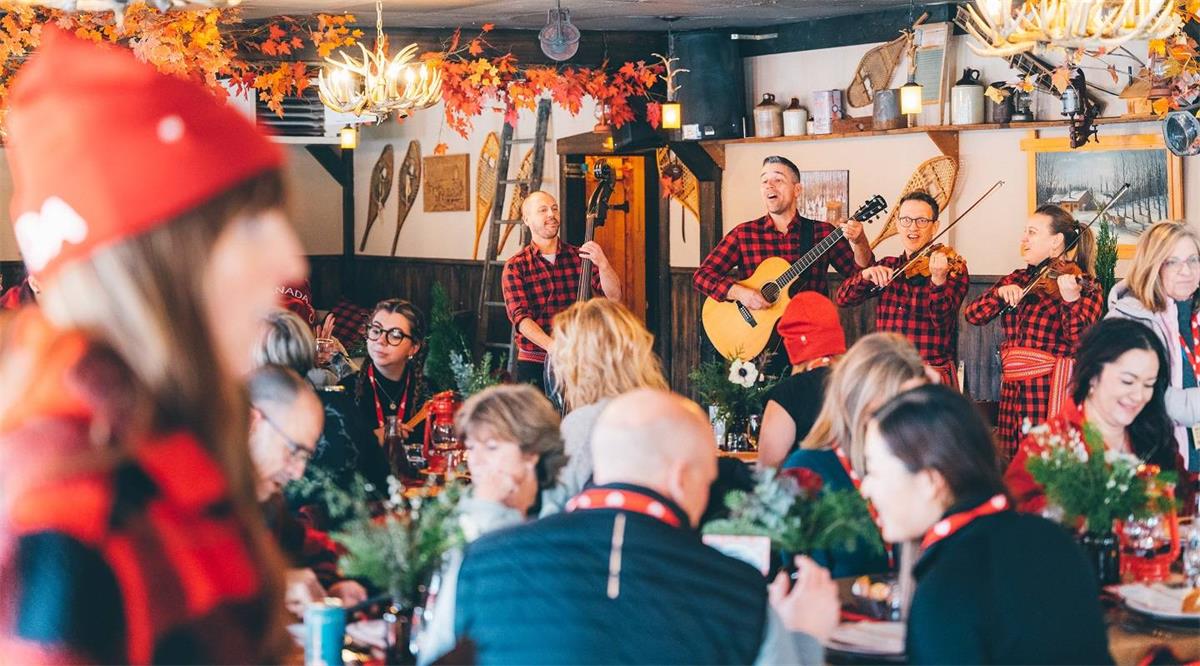More than ever, delegates are considering the sustainability and authenticity of the business events they attend.
Likewise, associations are committed to fostering a welcoming community and advancing diversity, equity and inclusion (DEI).
Incorporating socio-cultural sustainability into business events not only supports these DEI goals—it also satisfies attendees’ desire for an authentic experience with a positive legacy.
Socio-cultural sustainability means preserving and celebrating local cultures—including beliefs, practices and traditions—in the host destination. It also ensures that host community members have access to enough resources to keep their families healthy and secure.
Integrating socio-cultural sustainability into meetings and events can take many forms. To inspire, here are a few examples from the world of Canadian business events.
Stephanie Eagletail’s Fashion Show – Putting the Spotlight on Indigenous Cultures
Canada is home to a kaleidoscope of vibrant cultures, including the distinct Indigenous traditions, languages and identities that have evolved here since time immemorial.
To celebrate this, and in the spirit of socio-cultural sustainability, Destination Canada hosted a fashion show by Stephanie Eagletail for Canada Night at IMEX America in Las Vegas in 2023.
Eagletail, who is from the Tsuut'ina First Nation near Calgary, Alberta, is founder and owner of Stephanie Eagletail Designs, specializing in custom-made blanket coats.
Not only was this a fantastic opportunity to celebrate one of the many cultures in Canada and to raise awareness of Eagletail’s outstanding work, it was also an incredibly unique activation and helped draw attendees to the event.
Integrating Cultural Perspectives and Voices
From the initial bid to the final day of IMPAC5 in Vancouver, organizers upheld and respected Indigenous perspectives, voices and knowledge as a cornerstone of their event.
They sought to highlight Indigenous Peoples and their approaches to marine protection, and to create opportunities for Indigenous participants to network and learn from one another.
Organizers created an Indigenous Working Group, who created a series of Indigenous-specific activities that complemented overall programming.
These activities also enhanced the experience of more than 400 attendees who identified as Indigenous or represented an Indigenous Nation, government, or organization.
In a detailed report on IMPAC5, organizers recognized the presence of Indigenous influence and perspectives throughout the event, and celebrated the Indigenous world views and ocean conservation knowledge shared with the global community at IMPAC5.
Supporting Local Economies
In Canada, gifts for meeting attendees could include goods that have been handcrafted by Indigenous Peoples and reflect their rich heritages.
At Incentive Canada Winter 2023, Destination Canada held a fireside chat with Jason Picard-Binet, a member of the Huron-Wendat Nation and owner of Bastien Industries, whose artisans create moccasins in the Indigenous community of Wendake.
Picard-Binet explained the cultural significance of the moccasin to the Huron-Wendat Nation and highlighted the power of incorporating Indigenous practices into incentive programs.
Later in the event, each participant received a pair of Bastien Industries’ hand-laced and hand-beaded moccasins.
Incorporating sustainable and culturally meaningful gifts into your event not only adds a layer of authenticity, but also aligns with the principles of responsible and ethical event planning.
It fosters a sense of cultural exchange and respect, making your business event not just a transactional gathering, but a meaningful experience for all involved.
Fostering Culinary Connections

When it comes to pre- and post-event activities, there are endless possibilities—particularly so in Canada, where you can find socio-culturally sustainable experiences to suit any group’s preferences.
Meetings hosted in the province of Québec, for example, can engage with French-Canadian cuisine on a visit to a traditional sugar shack—or cabane au sucre – before or after their event.
These experiences, deep in the forest, celebrate a centuries-old method of making maple syrup, surrounded by trees festooned with pails, collecting sweet maple sap.
In spring, maple vapour fills the air, as “sugaring off” turns sap into sweet maple syrup, which groups can sample—alongside traditional fare like split pea soup, carved ham and frozen maple taffy, while enjoying the sounds of authentic Québecois music.
Engaging Extraordinary Experiences, Authentically
Following events hosted in the Northwest Territories, groups will encounter some truly exceptional experiences that they’ll never forget.
The Indigenous-owned Aurora Village, on the Ingraham Trail near Yellowknife, offers traditional activities in the great outdoors, dog sledding or snowshoeing across deep snow and through pristine forests.
By night, the astounding aurora borealis dances across the sky—as groups watch from a secluded teepee camp, while listening to traditional stories of the region and the Indigenous Peoples who have called this place home for millennia.
Learning From Locals
On Canada’s rugged East Coast, Food Culture Place supplies experiences which preserve the Maritime culture of Newfoundland and Labrador.
Founded by chef and outdoorsperson Lori McCarthy, these unique cultural food residencies focus on storytelling, foraging, hunting and cooking.
Groups spend time with the everyday Newfoundlanders who live, work and play in the community. They might meet a local fisher just bringing their boat in, pick a bunch of greens along the beach, and cook their first fish for dinner.
These pre- and post-event activities resonate with groups because they are authentic and unique to this place, which makes the experience genuinely special and absolutely unforgettable.